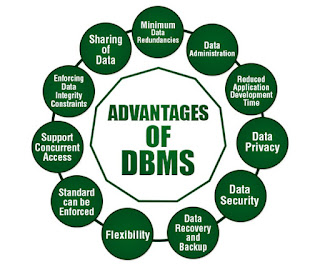Database Management System
Introduction to DBMS
Function of DBMS
A database's role is to store and organize information.
A database is a logically structured set of interconnected data that supports a variety of business purposes. The database not only records the values of different entities' attributes but also the relationships between them. A database's role is to store and organize information.
A database is a logically structured set of interconnected data that supports a variety of business purposes. The database not only records the values of different entities' attributes but also the relationships between them.
Advantages of DBMS
Reducing Data Redundancy is one of the benefits of DBMS, and Various files were stored in several different places within a system, or also through multiple systems, in file-based data processing systems. Also, Data Exchange Users of a database may exchange data between themselves. As well as Data Quality, refers to the accuracy and consistency of the data in the database. These are just a few of the advantages of BDMS.Additional DBMS benefits as mentioned above.
Disadvantage of DBMS
- Complexity
- Size
- Cost of DBMS
- Additional Hardware cost
- Cost of Conversion
- Performance
- Higher impact of a failure







Comments
Post a Comment